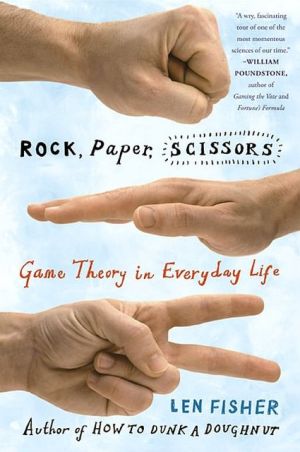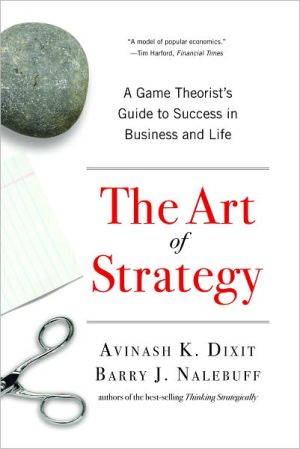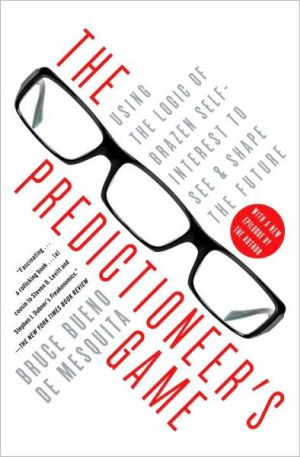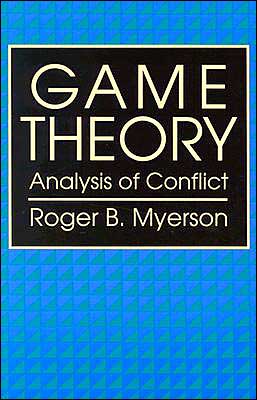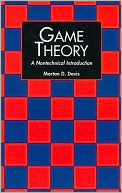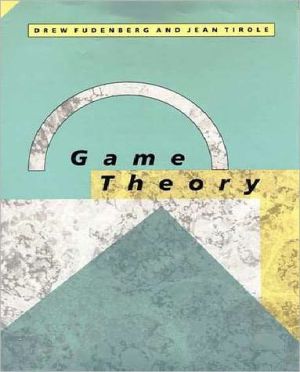Rock, Paper, Scissors: Game Theory in Everyday Life
Praised by Entertainment Weekly as “the man who put the fizz into physics,” Dr. Len Fisher turns his attention to the science of cooperation in his lively and thought-provoking book. Fisher shows how the modern science of game theory has helped biologists to understand the evolution of cooperation in nature, and investigates how we might apply those lessons to our own society. In a series of experiments that take him from the polite confines of an English dinner party to crowded...
Search in google:
The IgNobel Prize-winning author of How to Dunk a Doughnut draws on the science of game theory to explain how human beings cooperate in everyday life. Publishers Weekly Physicist and Ig Nobel Prize-winner Fisher (How to Dunk a Doughnut) explores how game theory illuminates social behavior in this lively study. Developed in the 1940s, game theory is concerned with the decisions people make when confronted with competitive situations, especially when they have limited information about the other players' choices. Every competitive situation has a point called a Nash Equilibrium, in which parties cannot change their course of action without sabotaging themselves, and Fisher demonstrates that situations can be arranged so that the Nash Equilibrium is the best possible outcome for everyone. To this end, he examines how social norms and our sense of fair play can produce cooperative solutions rather than competitive ones. Fisher comes up short of solving the problem of human competitiveness, but perhaps that is too tall an order. Game theory works better as a toolkit for understanding behavior than as a rule book for directing it. Fisher does succeed in making the complex nature of game theory accessible and relevant, showing how mathematics applies to the dilemmas we face on a daily basis. (Nov.)Copyright © Reed Business Information, a division of Reed Elsevier Inc. All rights reserved.
Introduction1 Trapped in the Matrix 132 I Cut and You Choose 333 The Seven Deadly Dilemmas 554 Rock, Paper, Scissors 915 Let's GetTogether 1076 Trust 1277 Tit for Tat 1558 Changing the Game 181Conclusion - Individuals Can Make a Difference: The Top Ten Tips 195Notes 201Index 257About the Author 265
\ From Barnes & NoblePhysicists know Len Fisher as a Nobel Prizewinning colleague. Readers know him as "the man who put the fizz in physics" and the author of How to Dunk a Doughnut. Just as his first book applies the laws of physics to our everyday sugar craving, Rock, Paper, Scissors explains what game theory can tell us about the myriad ways we interact. Dr. Fisher's lively exposition won't strain any reader's sanity; indeed, it's notable for its accessibility and verve. Who could not be entertained by his discussions of baseball strategies, supermarket shopping, and the apportioning of family chores?\ \ \ \ \ Publishers WeeklyPhysicist and Ig Nobel Prize-winner Fisher (How to Dunk a Doughnut) explores how game theory illuminates social behavior in this lively study. Developed in the 1940s, game theory is concerned with the decisions people make when confronted with competitive situations, especially when they have limited information about the other players' choices. Every competitive situation has a point called a Nash Equilibrium, in which parties cannot change their course of action without sabotaging themselves, and Fisher demonstrates that situations can be arranged so that the Nash Equilibrium is the best possible outcome for everyone. To this end, he examines how social norms and our sense of fair play can produce cooperative solutions rather than competitive ones. Fisher comes up short of solving the problem of human competitiveness, but perhaps that is too tall an order. Game theory works better as a toolkit for understanding behavior than as a rule book for directing it. Fisher does succeed in making the complex nature of game theory accessible and relevant, showing how mathematics applies to the dilemmas we face on a daily basis. (Nov.)\ Copyright © Reed Business Information, a division of Reed Elsevier Inc. All rights reserved.\ \
